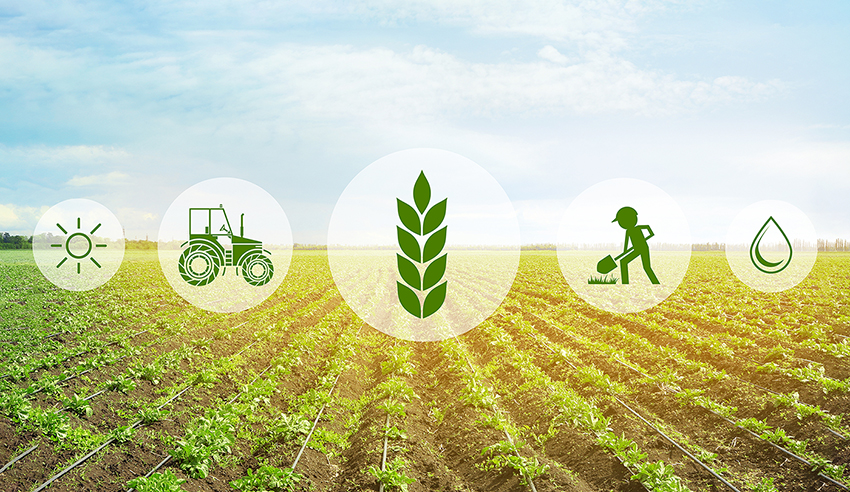The Indian government’s role in initiating creative and sustainable agriculture schemes becomes indispensable in light of the country’s rapidly expanding population and changing agricultural paradigms. This in-depth article on ‘Agriculture Schemes in India’ promises insightful data, recent updates, and a clear roadmap of initiatives that aim to strengthen the country’s agrarian framework—whether you’re a farmer, agronomist, policy-maker, or just an enthusiast keen on understanding India’s agricultural landscape. Immersion is the best way to learn about and take advantage of India’s agrarian policies.
Undoubtedly, the primary source of livelihood in India is agriculture and its related sectors, especially in the country’s vast rural areas. It also makes a substantial contribution to the GDP (gross domestic product). A comprehensive approach to rural development requires sound technologies like soil conservation, sustainable natural resource management, and biodiversity preservation. There have been four revolutions in Indian agriculture and related fields: the green, white, yellow, and blue revolutions.
Ministry of Agriculture’s List of India’s Agriculture Schemes
In India, the Ministry of Agriculture is essential to increasing agricultural productivity and guaranteeing food security. Acknowledging the difficulties farmers confront, it has introduced a number of programmes to encourage sustainable farming and increase output. Programs such as the Rashtriya Krishi Vikas Yojana (RKVY) strive for comprehensive agricultural growth, while the Pradhan Mantri Kisan Samman Nidhi (PM-KISAN) offers direct income support. The goal of the National Food Security Mission (NFSM) is to increase the production of staple foods. The Ministry’s dedication to changing India’s agricultural landscape and strengthening its farming community is evident in each carefully crafted scheme.
Yojana Parampragat Krishi Vikas
This programme was started in 2015–16 to encourage organic farming by increasing the marketing of produce that has been certified organic. As of 2018, 4 lakh farmers had benefited from this scheme, which had converted more than 23,000 hectares of land to organic farming.
Pradhan Mantri Kisan Samman Nidhi (PM-KISAN)
Launched on February 24, 2019, PM-KISAN is a central sector program designed to augment land-holding farmers’ financial needs, subject to certain exclusions. Under the scheme, farmers’ families nationwide will receive a monetary benefit of Rs. 6000/-per year, paid into their bank accounts in three equal four-month installments via Direct Benefit Transfer (DBT) mode. Through a variety of installments, 2.81 lakh crores have been distributed to over 11 crore farmers as beneficiaries of Direct Benefit Transfer (DBT). This scheme is also beneficial in Tractor loan for the Indian farmers.
National Mission on Natural Farming
By expanding the Bhartiya Prakritik Krishi Paddati (BPKP), the government has created the National Mission on Natural Farming (NMNF), a distinct and autonomous program that will run from 2023 to 2024, with the goal of encouraging farmers to embrace chemical-free farming and expanding the reach of natural farming. The plan is in place for the years 2023–2026.
Farmer Producer Organizations (FPOs)
In 2020, the Central Sector Scheme (CSS) for the “Formation and Promotion of 10,000 FPOs” was introduced by the government.
Implementing Agencies (IAs) are responsible for the formation and promotion of FPOs. CBBOs are then tasked with forming and providing professional handholding support to FPOs for a period of five years, which includes the creation and implementation of business plans for the relevant FPOs.
Pradhan Mantri Fasal Bima Yojana (PMFBY)
The government-sponsored crop insurance program, known as the Pradhan Mantri Fasal Bima Yojana (PMFBY), unites various stakeholders on a single platform. It is to offer farmers insurance protection and monetary assistance in the event that any of the notified crops fail due to pests, diseases, or natural disasters. The scheme stabilizes farmers’ incomes in order to guarantee their continued farming. It also motivates farmers to implement cutting-edge, contemporary farming techniques. Additionally, it guarantees credit flow to the agricultural industry.
National Beekeeping & Honey Mission (NBHM)
It is a Central Sector Scheme that introduced in 2020 as part of the Atma Nirbhar Bharat Abhiyan with the aim of achieving the Sweet Revolution and promoting and developing scientific beekeeping generally.
Ayushman Sahakar Scheme
India’s cooperative societies can enhance their health infrastructure with financial support from the government through the Ayushman Sahakar Scheme. The program, which had a Rs. 10,000 crore budget, introduced in 2023.
The program offers cooperative societies financial support for a range of uses, such as:
- Hospital and health centre construction and renovation
- Purchasing medical supplies
- Medical staff education Promotion of preventive healthcare
- It anticipated that the programme will help more than 100 million Indians. It is a significant step towards enhancing underserved and rural communities’ access to high-quality healthcare.
Pradhan Mantri Kisan Tractor Yojana
A number of states, including Assam, Bihar, Madhya Pradesh, Maharashtra, etc., have already seen success with the scheme. Benefits are available to anyone who satisfies all eligibility requirements. It is beneficial in Tractor insurance for the Indian farmers. These are all about Government Policies and Initiatives on Agriculture in India. For more details regarding any agriculture topics such as tractors, agricultural implements stay connected with us.









